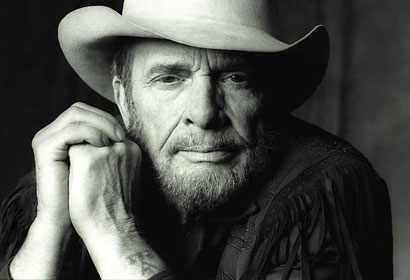The Songwriters Hall of Fame was saddened to learn of the passing of 2007 Inductee Merle Haggard today, on his 79th birthday.
“Merle Haggard?s songs rallied blue-collar workers with their old-fashioned values,” said SHOF President & CEO Linda Moran. “He will always be revered as a grand narrator, his treasured gems reflecting his own personal life and viewpoints and making him the spokesman for his core audience. A true red, white and blue American, he often wrote as an aggrieved patriot, but still always as a proud American, one of the common folk. His songs, although sometimes appearing to be subtler than they actually were or were intended to be, usually always hit their target ?. the listener?s heart.”
“Merle Haggard was truly a great songwriter and legendary Country Music artist that will be truly missed. Clearly, he had his own unique way to tell a story through his music and songwriting that made him beloved and a respected artist not only in Country Music but around the world. We will continue to honor Merle Haggard here at the Songwriters Hall of Fame for years to come,” said SHOF Co-Chairmen Kenneth Gamble and Leon Huff.
Merle Haggard was one of the architects of the “Bakersfield Sound,” named after the California town in which he was born in 1937. Labeled a “black-hat rebel,” he was considered the country music champion of the underdog. After Haggard’s first album was released in 1965, he became best known as the man who sang songs about wanderers, fugitives, and the generally downtrodden.
He started out life with his family in a converted railroad boxcar on the outskirts of Bakersfield, his father having gotten a job on the Santa Fe railroad, thus contributing to Haggard’s lifelong obsession with trains, even naming his 1976 My Love Affair with Trains. He was given a guitar at the age of 12, and learned to play listening to records by Bob Wills, Lefty Frizzell and Hank Williams. His father’s devastating early death when Haggard was 9 years old had already set him on a path that led him to several stints in various juvenile detention centers and local jails, winding up in San Quentin Prison until 1960. There, he began playing for the prison’s country music band, attributing a 1958 performance by Johnny Cash at the prison as his main inspiration to join it. ?Mama Tried,? considered by some critics to be Haggard?s greatest song, is a fairly straight autobiographical account of his road to San Quentin, and many of his biggest early hits, like “Branded Man,” “Sing Me Back Home,” and “Mama Tried,” alluded to his criminal past. In 1969 he and Roy Edward Burris penned the song that would become his biggest pop hit, “Okie From Muskogee.”
?The Bottle Let Me Down,? ?Sing Me Back Home,? ?Mama Tried,? ?Okie from Muskogee,? and ?Workin? Man Blues,? were all produced between 1966 and 1969, and were hailed as anthems of the Silent Majority.
According to Rolling Stone, “In 1972, then?California governor Ronald Reagan expunged Haggard’s criminal record, granting him a full pardon.”
Haggard produced hits steadily over the next two decades; 38 of his songs would be Billboard country No. 1 singles. Reiterating the underdog themes of his early music in the 1970s, he produced the recession ballad ?If We Make It Through December? in 1973. He joined forces with Willie Nelson to produce ?Pancho and Lefty? in 1983, and won a Grammy in 1984 for ?That?s the Way Love Goes.? He was inducted into the Country Music Hall of Fame in 1994.
Haggard leaves behind his wife Theresa and his six children.


